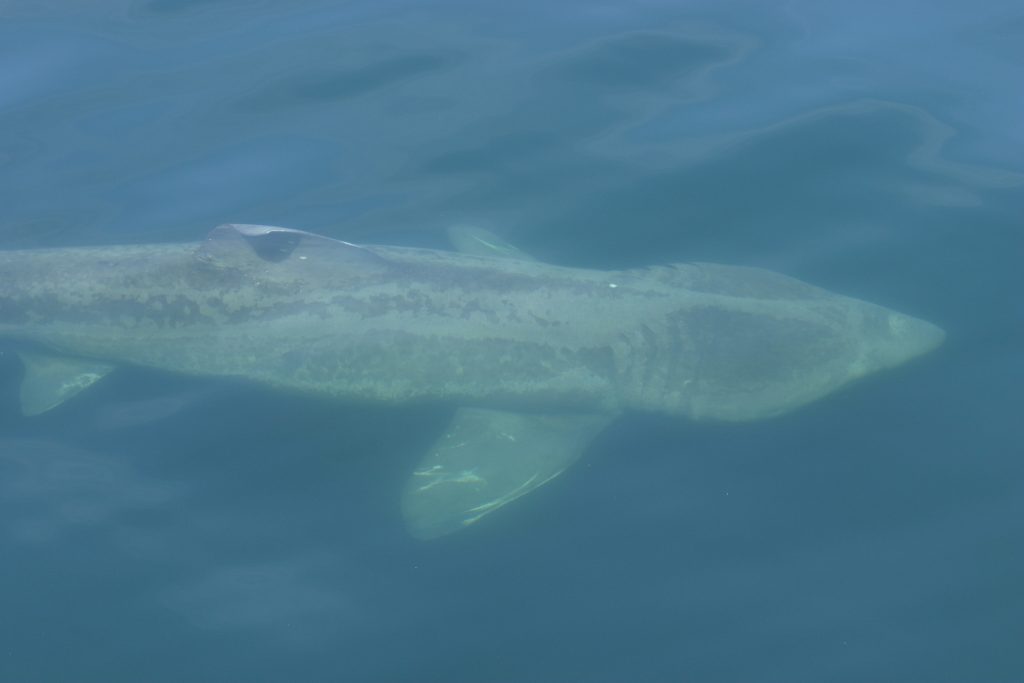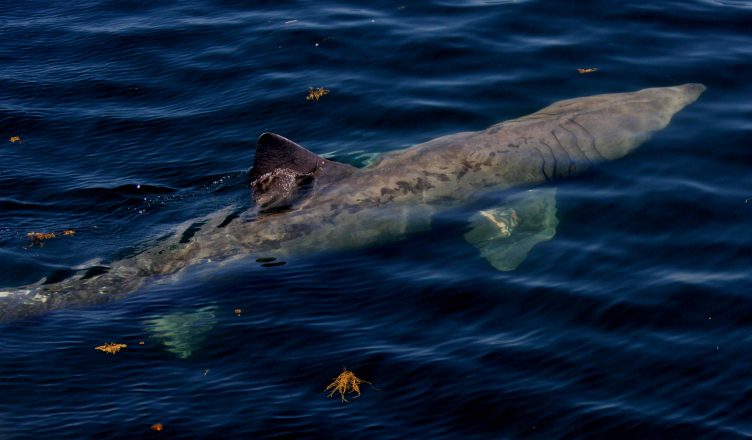I have been doing a bit of research on basking sharks for this blog in my series of Unsung Heros of Whale Watching. I know a little bit about basking sharks, but I am not at all an expert. My online research is part of the reason I don’t know all that much about this gentle species. Not much consistent info exists!

Some things we do know are:
- Basking sharks are the 2nd largest fish species (2nd to the whale shark) measuring up to 40 feet.
- They are 1 of only 3 plankton-eating shark species.
- They have 100’s of teeth, but each one is only about 5 mm long and not used for feeding.
- Their mouth opens to over 3 feet wide, filtering up to 120,000 gallons of sea water per hour.
- Basking sharks were commercially used for food (meat), cartilage (shark fin soup and an as an aphrodisiac) and oil (the liver can yield over 250 gallons of oil).
Recent enlightenment:
- Basking sharks do not hibernate over the winter. Tagged sharks off Cape Cod, MA in 2009 were tracked to cross the equator and headed towards Brazil, staying at 600-3000 feet below the surface.
- They constantly regrow their gill rakers.
- Basking sharks are believed to give birth to the largest babies of all fish species (just over 5 feet at birth).
So, with all that in mind, we only see basking sharks on 3-5% of our whale watching trips on average. Looking at the data, June seems to be the month with the most basking shark sightings, which surprised me as I always assumed these animals seem to prefer warmer water. Typically in June our water temps are in the 50’s °F and that is about right for what other scientists share as being their preferred temp.
In the western north Atlantic, basking sharks are listed as vulnerable to extinction due to their historical over-harvesting. They are also now known to cross boarders where protections are not in place.
That all being said, every year is different and we have had a high number of basking shark sightings in July and Aug of 2016, when water temps were in the 60’s °F.
Some of our most memorable sightings include basking sharks swimming circles around our boats, breaching out of the water multiple times, and even seen swimming nose to tail in circles with other basking sharks. Our guests love seeing these sharks (who wouldn’t??) and to have these docile creatures comfortable with being right alongside our boats is a pretty amazing experience.
From our data, June is the best chance to see basking sharks in our area, but they can be seen at any time during our season. Our local whale/shark watching company is Granite State Whale Watch. Call them for reservations!






